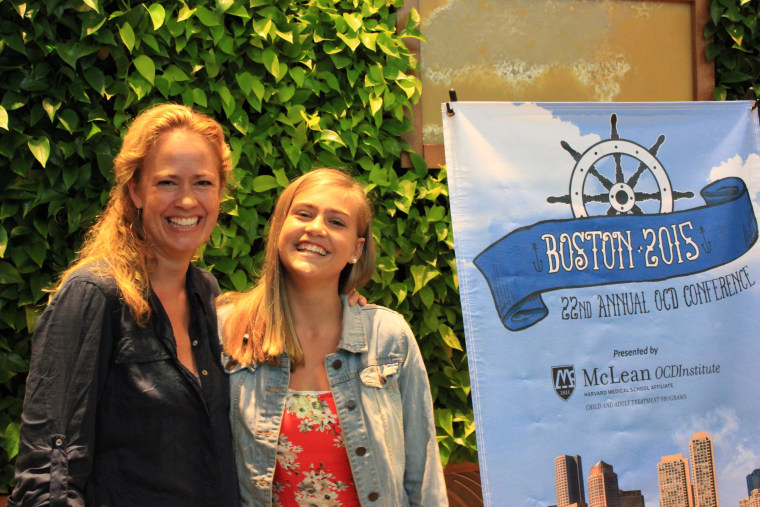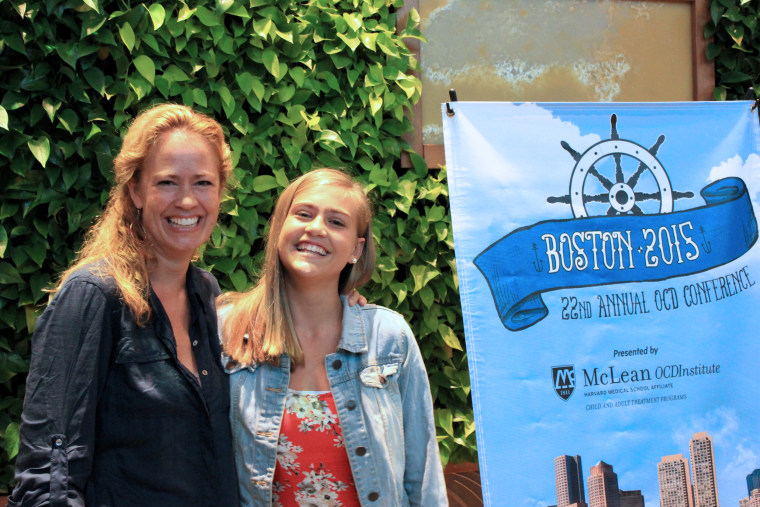Thirteen-year old Megan remembers when all she could think about was washing her hands.
“I wasn’t myself. I would spend hours getting dressed; I was scared everyone was dying, and if I touched something that was dirty, I would spend hours making sure I was clean,” Megan explains.

She says the thoughts began when she was 3-years-old, but by the time she was in the first grade, her obsessions began to interfere with her schoolwork, and even led to panic attacks.
As a toddler, Megan was diagnosed with Sudden and Severe Onset Obsessive Compulsive Disorder (OCD), or PANDAS. The diagnosis came more than six months after she showed initial, severe symptoms of the disorder.
Megan’s mother, Susan Boaz, explains that most doctors thought Megan was too young to have OCD, further delaying her daughter’s diagnosis and access to treatment.
“There is amazing under-diagnosis with OCD,” Susan says, noting that it can take many children up to 14 years to be properly diagnosed. “Kids can lose a childhood.”
Experts define OCD as the recurrence of distressing thoughts or images that produce extreme anxiety. In order to dismiss the thoughts and images, individuals with the disorder feel compelled to engage in repetitive and compulsive behaviors that ultimately interfere with their daily lives. PANDAS is a specific type of OCD that is triggered by a strep infection.
The gold standard of treatment for OCD is a type of cognitive behavior therapy called Exposure Response Prevention therapy, or ERP, which entails gradually conditioning patients to confront the triggers of their obsessive behavior for increasingly long periods of time, without acting upon them. The treatment can be successful at helping patients gain better control over their anxiety, but experts also believe younger patients can benefit from meeting others in the OCD community along the way.
It’s one of the reasons why Megan and her mother have made an annual trip to the International OCD Conference every year since 2009.
“The OCD population is very isolated,” explains Dr. Jeff Szymanski, executive director of the International OCD Foundation, which runs the conference. “Fifty percent of people with OCD haven’t met others who do.”
He adds that over the years, the conference has increased its focus on kids and their parents, developing community-based, youth-centric programming that runs the gamut from support groups, personal storytelling sessions, treasure hunts, and teen socials. Parents also have the opportunity to trade information and support with other parents.
“It gets us the best access to doctors, researchers, new OCD treatment options, and other families who are experiencing exactly what we are going through,” Susan says, explaining that Megan even learned ERP at the event. “The whole world opened up to us because of this conference.”
'She's OCD!' 'He's Schizo!' How Misused Health Lingo Can Harm
Megan is most excited about the Saturday Night Social and Karaoke night because it will allow her to spend time with old friends she made at the conference years ago.
“It is home,” she gushes. “Nowhere else can compare. Though I am comfortable talking to my friends from home about my OCD, no one gets it like my friends at the conference.”
Dr. Szymanski emphasizes that OCD is very treatable. “You can get your life back on track.”
When asked about the change Susan has seen in her daughter over the years, Susan smiles with pride.
“Megan’s OCD used to stop our lives. It doesn’t anymore. She has really lit up.”
And Megan, looking up at her mom and nodding in agreement, adds, “Coming back every year reminds me what to do if anything happens. My symptoms get less and less every year, but this conference is where I learned to just breathe.”
What Do Tail-Chasing Reveals About Human OCD
The Annual OCD Conference began in 1993. This year, conference organizers expect more than 1,700 people to attend at the Westin Waterfront Hotel in Boston, from Thursday, July 30th to Sunday, August 2nd.

